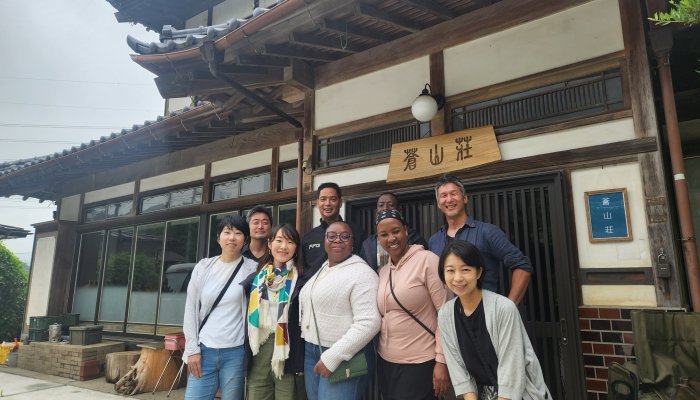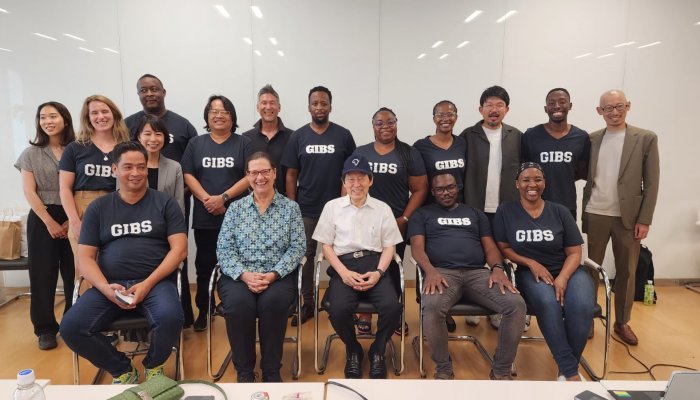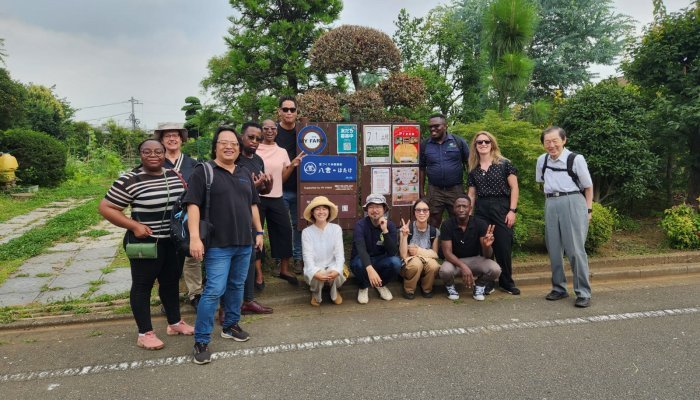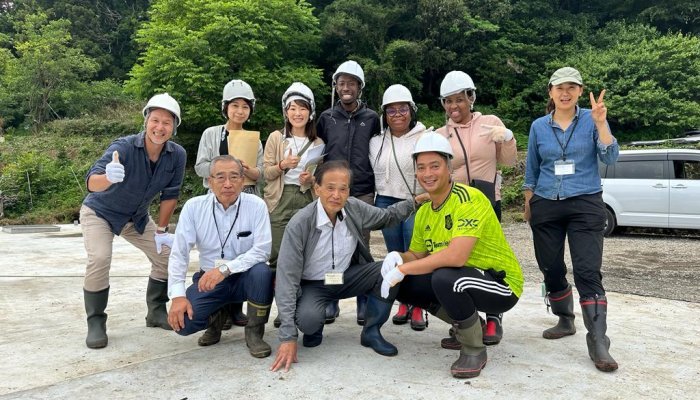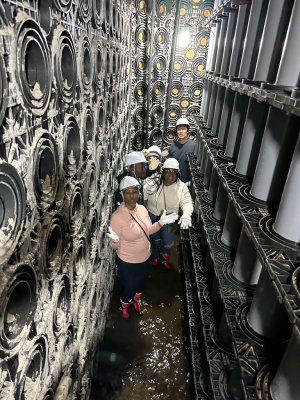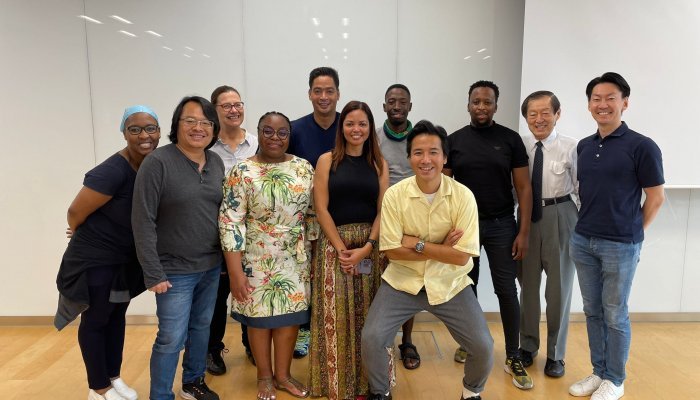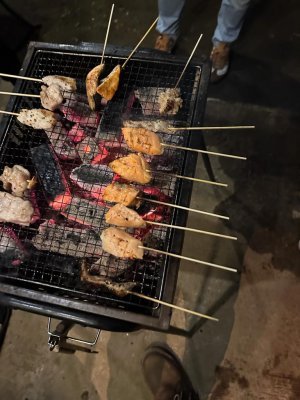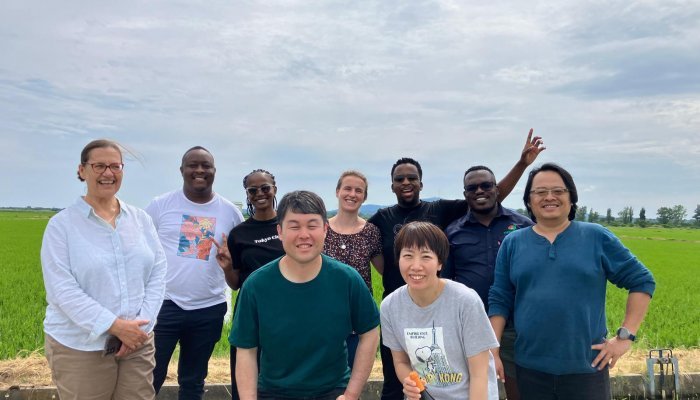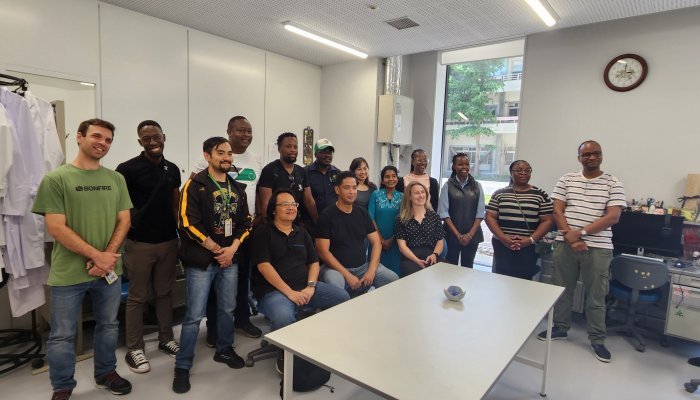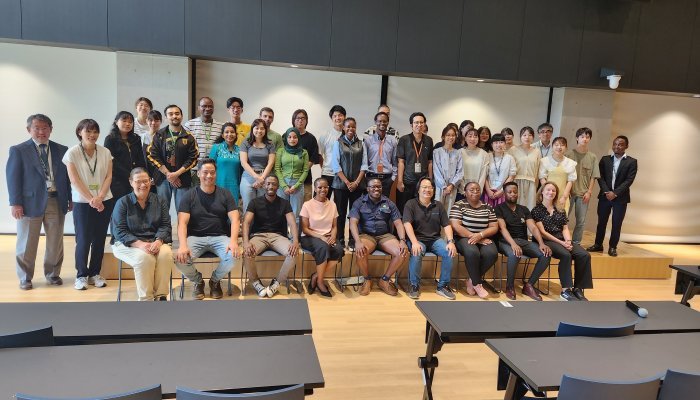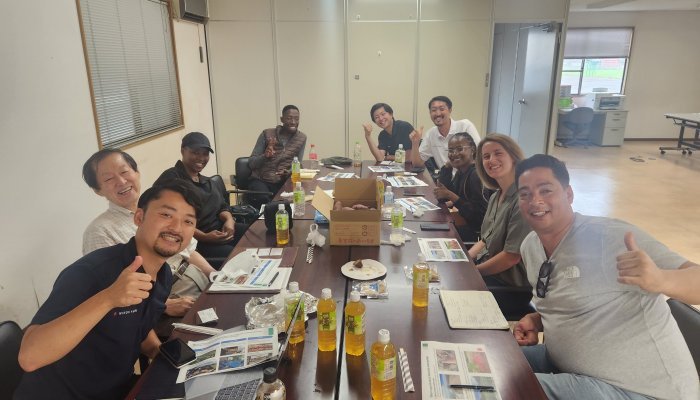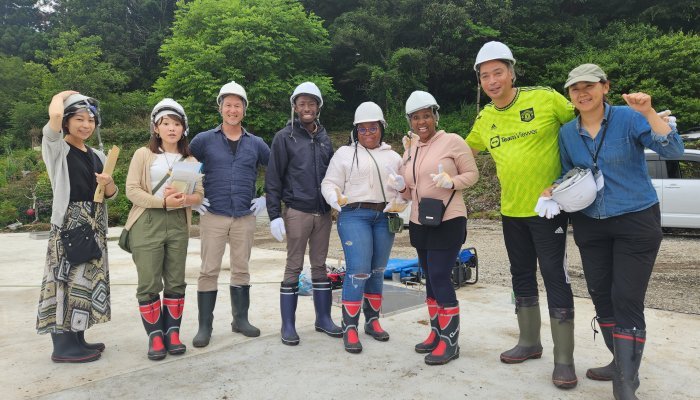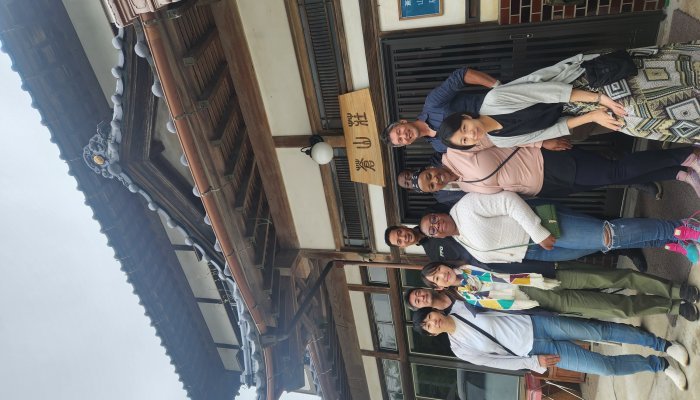The Asia-Africa Partnership Forum brought together young South African and Japanese entrepreneurs in the agricultural sector to take part in a collaborative empowerment and innovation project. With funding from the Alliance for African Partnerships (AAP) and the Toshiba International Foundation, 10 young people from South Africa and five from Japan were brought together to broaden their knowledge in the agribusiness sector.
The forum was spearheaded by the GIBS Entrepreneurship Development Academy (EDA), in collaboration with Japan’s Akita International University and Michigan State University in America. The structure of the programme was designed to develop and empower the next generation of agribusiness leaders from Japan and South Africa. The other objective of the cross-cultural encounter was to create opportunities for developing partnerships for the sustainable development of Africa.
By bringing together participants from completely different backgrounds and cultures, the organisers sought to generate research that would influence future enterprise development programmes. The underlying premise of the programme was to ascertain similarities and/ or differences in how young people in the agribusiness value chain approach business. The meeting of these young people, who are operating their businesses in different cultures and countries that have different developmental milestones, was specifically designed to foster dialogue.
The 18-month programme kicked off in September 2021, while the world was still in the grip of the Covid-19 pandemic. The initial group interactions were facilitated through virtual workshops. During this period, the young entrepreneurs had to overcome the initial challenges presented by different time zones, language barriers and other cultural differences – all via virtual connections. And when the world started opening up, in-person interactions began with exchange visits between South Africa and Japan.
The Asia-Africa Partnership Forum programme was largely an exercise in experiential learning. The academics, conveners and organisers behind this programme were intentional in designing a project that allowed the participation to be more hands on and prone to immediate solution creation. During their interactions, both virtual and physical, the participants were able to co-design and formulate joint business ventures through practical activities. They were also able to formulate empowerment solutions that will foster and grow entrepreneurial innovation.
“The whole process was about collective learning. This programme was premised on trans-local learning, which entails bringing together people from different contexts, cultural backgrounds, and geographical locations together to engage on similar issues,” explains Dr. Farai Kapfudzaruwa from the University of Pretoria, one of the leaders of the Asia-Africa Partnership Forum. Working alongside Dr Kapfudzaruwa on the South African side was GIBS' Professor Kerrin Myres. Other academics and leaders from the Universities of Michigan and Japan’s Akita International also worked tirelessly to ensure profitable connections between agri-preneurs from the two countries.
Developing rural and township economies
The agricultural sector in South Africa continues to be one the pillars of economic growth and job creation. It also has the potential to boost the economic development of urban, peri-urban and rural economies. Although this sector is labour intensive and the operating risks are high, through partnerships such as the Asia-Africa Partnership Forum, young people have been able to find modern solutions to the problems that are currently plaguing the sector, while learning from traditional methods, and diversifying their participation in agribusiness.
South Africa has often been described as a water-scarce country that is facing growing water supply shortages. This is a development that has forced business owners in the agriculture value chain to find creative and innovative solutions that will ensure that their production yield is not hampered. Mitigating the effects of changing weather patterns has also required swift action in order to minimise those operational risks in a sustainable way.
At the same time, South Africa’s unreliable electricity supply has forced emerging players in the agribusiness space to be innovative and partner with others in order to create mutually beneficial business ecosystems that benefit everyone involved.
Some of the learnings from the project for the South Africans have revolved around being agile and innovative in responding to immediate challenges and business risks. “There is a lot of interest in learning about how the Japanese use water and land more effectively, since about 60% of the terrain in Japan is mountainous and there is limited space for agricultural activity. The South Africans discovered that the Japanese employ very intensive agriculture which uses technology that results in very high yields,” notes Dr. Kapfudzaruwa.
When innovators gather
In the same way that it had happened when the South Africans visited Japan, when it was the turn of the Japanese to visit South Africa, they also had many questions and were equally curious about how things were being done here. During their visits to their counterparts’ farms and industrial factories, they were able to see firsthand some of the challenges and daily realities of operating in the agribusiness sector in South Africa.
Although a team of experts was brought in to offer insights into finance and other business developments, the agri-preneurs from both countries were more interested in sustainable entrepreneurship. Even though the conveners created spaces for engagement on specific business-related topics, challenges and solutions, the young entrepreneurs from South Africa, for instance, wanted to know more about Japanese use of traditional sustainable practices, which is helping their Asian counterparts yield high produce. The team from South Africa was keen on learning more about the Japanese sustainability approaches. Like their Japanese counterparts, some emerging players in the South African agribusiness sector do not have large acres of land, while others operate in urban and peri-urban areas where access to land is limited.
Another pattern that emerged during this programme is the great similarity between the Japanese and South African experience. “They thought because they come from different countries, cultures and backgrounds, they were different. But they actually ended up learning that the way they understand and resolve issues is similar,” observes Dr. Kapfudzaruwa.
Some of the key outcomes that have emerged from the 18-month programme have been the creation of a solid social business network of like-minded agribusiness participants that is likely to last a lifetime. After the programme this cohort of agribusiness owners will be working together to take advantage of opportunities in South Africa and Japan. They will leverage on each others’ networks and continue to engage and share contacts, solutions and discoveries.
KEY TAKEAWAYS:
- Agri-preneurs in Japan and SA have a lot in common than previously thought.
- Young entrepreneurs from Japan and South African believe in sustainable agribusiness.
- Global rural communities can partner to foster economic growth.


